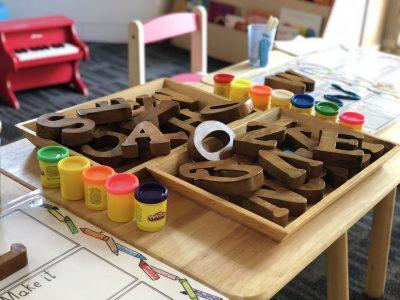
The Cambridge City Council & School Committee hosted a virtual joint roundtable meeting to discuss the next stages of establishing universal pre-kindergarten in Cambridge on Monday.
Lisa Grant, the executive director of the Birth to 3rd Grade Partnership — an organization that supports the early childhood ecosystem in Cambridge — said UPK will give families the “opportunity to voluntarily enroll their child in a publicly-funded pre-kindergarten.”
“What I envision … is a mixed delivery model, so a combination of school-based programming and community-based programming, including family childcare, serving all three and four-year-olds in our community with a particular emphasis on ensuring our lowest income children and families receive priority services,” Grant said in an interview.
At the roundtable, Grant said UPK would mean “that up to 75% of families earning state median income would incur no co-payment for childcare” up to five years old. Meanwhile families “making up to 250% of the state’s median income would pay no more than 7% of their income towards childcare.”
Other provisions of the UPK plan include support for family outreach, staff credentials and pay parity for teachers — all of which are components of President Joe Biden’s Build Back Better Framework.
Titus DosRemedios, the deputy director at Strategies for Children — a children’s education advocacy group — said UPK will have “a positive impact on children.”
“We are in support of birth to five,” DosRemedios said. “So infants, toddlers, preschool age, children, all having access to high quality, affordable or free early education and care.”
Marc McGovern, Cambridge City Councilor, said in an interview that the UPK program should be more “play-based” and “creative.”
“I don’t want kids to worry so much about worksheets,” he said. “I want kids to be able to come to an environment where they can build their creativity, where they can learn, where they can do hands-on activities, where they can learn the social skills that they need, and that’s more developmentally appropriate for kids of that age.”
McGovern said he was “frustrated” after hearing that a comprehensive UPK program will come into effect in 2026, according to the presentation from the roundtable.
“I’ve been having this conversation [about UPK] for 18 years, trying to push the City, and it’s just unacceptable, ” he said.
Grant explained at the roundtable that there are “large systemic changes” between the current school system and the UPK.
“I’m taking this opportunity to revise district and city policies as needed, building the processes, tools and capacities for implementation and then securing funding and determining how the funding model will work for universal pre-k,” she said.
“It’s not like we’re starting from scratch. We know how to do this,” McGovern said. “We already have programs that are doing this, so it’s not like this is a brand new thing for us.”
DosRemedios said collaboration is a necessary measure to improve the program.
“It is not just one program growing and expanding. It is all of the programs together working in unison,” DosRemedios said.
DosRemedios added ideally they would have “a shared equitable governance model” with the school committee and the city council working together to implement UPK.
DosRemedios said that sustainable funding and program quality of UPK is also a concern.
“You have to measure and evaluate program quality, once you’ve started a program, to make sure that the programs are continuously improving and meeting a high standard,” he said. “You can’t just say because we have all of the children enrolled, we’re done.”
DosRemedios said the best way to start the program is to focus on expanding access to the program while maintaining affordability and quality.
“It doesn’t have to be perfect. It just has to have continuous progress towards universal [pre-kindergarten],” DosRemedios said. “We want all families to have access to good programs.”
Grant said at the roundtable that Cambridge could begin implementing part of the UPK program over the course of the next 18 months.























































































































Cindy • Feb 18, 2022 at 8:21 am
good job Yiling!! I’m enjoy in reading your news!